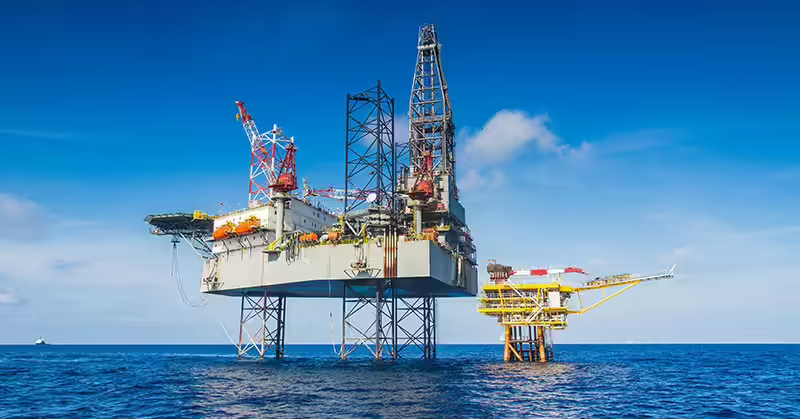Safety Concerns In The Offshore Oil And Gas Industry
October 27, 2020

The offshore oil and gas industry provides thousands of jobs to the United States’ workforce. Many families supported by these jobs that are scattered along the Gulf Coast of Mexico understand the obvious safety concerns that come with working in the offshore oil and gas industry. What many do not understand, however, is what to do when a loved one is injured or killed while working in the offshore oil and gas industry.
Who Regulates And Enforces Safety Rules Of Offshore Oil And Gas Operations?
The Bureau of Safety and Environmental Enforcement (“BSEE”) regulates and enforces safety rules of offshore oil and gas operations. Part of the BSEE’s responsibilities is to keep detailed information regarding incidents of non-compliance. When a violation or incident of noncompliance (INC) is discovered in the offshore industry, the BSEE will issue a warning or a shut-in. A warning is issued when the safety violation is not severe or threatening. A shut-in can be issued for a single component (a portion of the facility) or the entire facility. The violation must be corrected before the operator is allowed to continue the activity in question.
In addition to a warning or shut-in, an employer who is found to be in violation of safety regulations can be fined up to $42,017 per violation per day if: (1) the operator fails to correct the violation in the reasonable amount of time specified on the INC; or (2) the violation resulted in a threat of serious harm or damage to human life or the environment.
After an INC report is made, the BSEE typically convenes a panel to investigate incidents that result in death, serious injury . . . .” At the conclusion of the panel’s investigation, BSEE will produce a report explaining why and how an accident occurred, the causes of the incident, any possible regulatory requirements that were violated, and offer recommendations to prevent a recurrence.
Fatal Injuries in Offshore Oil and Gas Operations
Another agency involved in offshore oil and gas industry incidents is the Center for Disease Control and Prevention (“CDC”). In 2013 the CDC conducted a study regarding statistics about the number and percentage of fatal injuries among workers involved in offshore oil and gas operations. In this study, the CDC discovered that 128 offshore workers were involved in fatal accidents between 2003-2010. According to the CDC’s study, there are on average 16 fatalities each year relating to offshore oil and gas operations in the United States—all but one of these fatalities took place in the Gulf of Mexico.
Common Causes of Offshore Accidents
- Damaged equipment
- Exposure to dangerous chemicals or fumes that lead to burns, respiratory disease, or death
- Exposure to electrical hazards
- Exposure to highly pressurized equipment
- Failure to create or implement safety policies
- Failing, outdated or defective equipment and machinery that lead to breakdowns or other problems
- Improper maintenance of equipment and facilities
- Inadequate warning signs
- Inadequate manpower or personnel for the job
- Negligent training or supervision
- Oil rig explosions and fires
- Slippery conditions
What Should I Do If I Am Injured Or If I Lose A Loved One To An Offshore Oil And Gas Operations Accident?
The insurance companies responsible for the negligence of its clients know that it is not in their best interest for an injured worker to reach out to an attorney to explore his or her rights to recover for damages that were sustained. In an attempt to avoid exposure to liability, the insurance companies will often resort to one or all of the following tactics:
- Get you to sign a release for a nominal amount of money so that you are barred from bringing any future claims for your accident and injuries;
- Obtain recorded statements immediately after the accident that will favor your employer and disfavor you; or
- Convince you that you do not have a claim because “nobody was at fault” or because “it was just an accident.”
No matter the tactic used by the insurance company, you should always seek legal advice before making any decisions that could affect your legal rights. Through years of experience, the Houston Offshore Injury Lawyers at Morrow & Sheppard LLP know how to evaluate any potential claims that you may have which resulted from an offshore fatality or serious injury. Call us today at 800-489-2216 for a free consultation regarding your accident and injuries.
John Sheppard is an experienced trial and personal injury lawyer who prides himself on working harder than the competition, aggressive legal representation, strategic thinking, and successful results. John particularly enjoys trying complex cases such as refinery and plant explosions, maritime accidents, oilfield accidents, wrongful death, and more. Learn more about John.
- Home
- |
- Offshore Injury
- |
- Safety Concerns In The Offshore...
















































